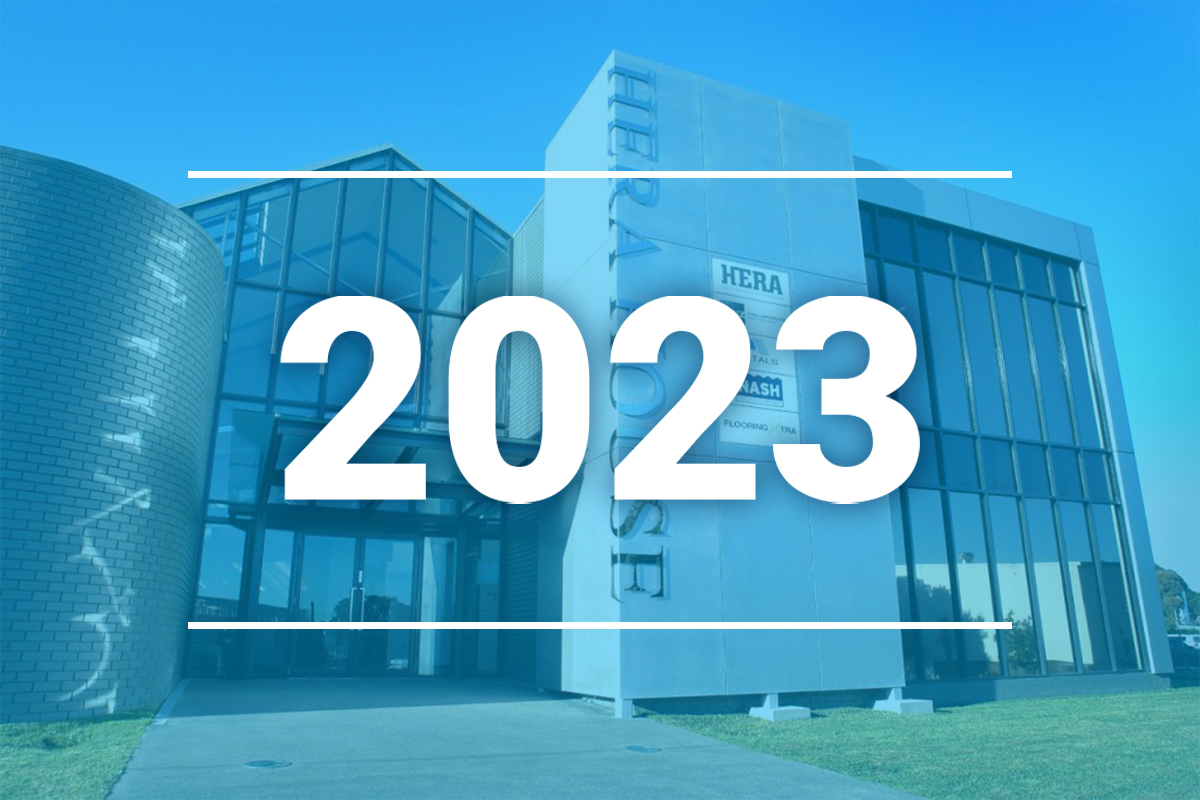This year HERA has increased, initiated and built upon a number of world-leading research programs.
These programs reinforce HERA and Aotearoa New Zealand’s leadership in research related to low carbon design, circular design and Industry 4.0 in both the construction and manufacturing sectors.
The emphasis is on collaboration.
We build cross-disciplinary research teams, that include the best researchers in the world, to solve industry problems.
Our $10.3 million MBIE Endeavour funded Construction 4.0 research program now has more than 50 researchers (including research students) across 9 universities/research organisations engaged.
In 2024, we are planning to release a book to showcase the sectoral roadmap required for a Construction 4.0 transformation, as a result of this cross disciplinary research. Many aspects of this research will be at the forefront of international developments in this field. This includes the engine room of this research – the circular design research program- which HERA’s Dr Michail Karpenko is leading. It also includes incorporation of indigenous knowledge, through the Mātauranga Māori theme, led by AUT’s A/Prof Fleur Palmer.
The project will also involve one of the first case studies for use of emerging dynamic Life Cycle Assessment methodologies, being developed by Massey University’s Prof Sarah McLaren. And these are only a few snippets of the transformational research being undertaken in this project. Other research subcontractors included Universities of Auckland, Canterbury, Michigan, Miskolc, New Hampshire and Waikato, along with Tufts and some individual research contractors, including leader in public governance research, Prof Jeroen van der Heijden.
This year, we signed our first research project agreement with the Australian Composites Manufacturing CRC. This project will establish an AI-based monitoring system for inspecting the quality of manufactured composite products, including steelwork. Other research projects with the CRC will focus on extending AI tools to design optimisation and the optimisation of steel composite building connections. This is a ten year research program of work, with HERA identified as a key international partner. In these projects, we will be specifically collaborating with research leaders from University of Sydney and ANSTO.
Our low carbon design project, which is being partially supported through the building research levy, is providing evidence-based guidance to designers and specifiers to reduce carbon across the whole life of a building. Our initial focus is on providing guidance for low-rise building typologies but we intend to expand out to provide more comprehensive guidance across building typologies and to also include key infrastructure, such as bridges. We are working across building materials (specifically timber and concrete) and across the channel (from designers and specifiers to fabricators and erectors and end-of-life demolition). Our research contractors on this project are WSP and Aurecon. Our industry advisory group for this project includes members from Concrete NZ, Timber Unlimited, ACENZ, Auckland Council, BRANZ, Engineering New Zealand Te Ao Rangahau, MBIE SESOC, and Te Kāhui Whaihanga NZ Institute of Architects.
We are also involved in a number of projects improving the seismic performance of our building stock- including how to balance resilience, building performance and cost/productivity. For example, we are a part of the $8 million MBIE Endeavour supported AUT project focused on eliminating earthquake damage, being led by Dr Shahab Ramhormozian, where we also partner with the University of Auckland.
Looking forward
In 2024, we will expand our capabilities further. Not only will we be home to the existing national centre of excellence in Fabrication 4.0 (Fab4.0Lab), we will also create a national centre of excellence in building health monitoring (the tabs4.0lab) through the construction of our planned 6-star greenstar Innovation Centre. This facility will be a hub for construction 4.0 and advanced manufacturing research and training.

